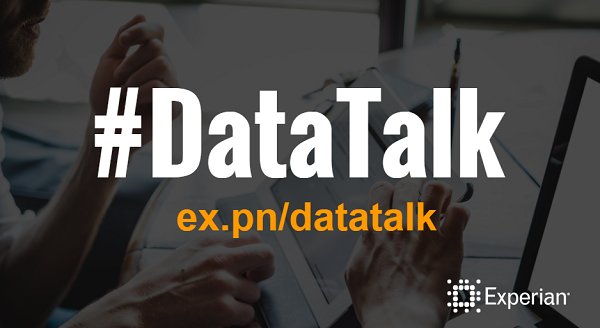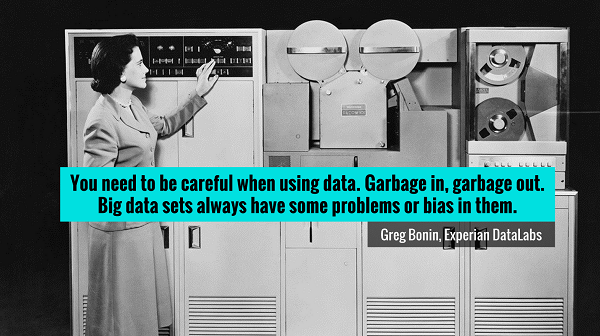How Big Data Can Detect & Prevent Fraud

In this week’s #DataTalk on Twitter, we talk about ways big data can detect and prevent fraud. Our panel included Julie Conroy, the research director for Alite Group’s Retail Banking practice and Keir Breitenfeld, the VP of Product Strategy for Fraud & ID at Experian Decision Analytics.
Our big data tweet chats are hosted by @ExperianDataLab and occur every other Thursday at 5 p.m. ET.
If you have questions or suggestions for future topics and guests, please tweet @MikeDelgado.
Questions We Discussed:
- Q1: Why is it important for an organization to focus on preventing fraud?
- Q2: How can big data help in detecting fraud?
- Q3: How is big data being used right now to prevent fraud?
- Q4: What are the biggest challenges today for organizations implementing a fraud detection solution?
- Q5: What types of data are used to help financial institutions prevent/detect fraud? How?
- Q6: How hard is fraud prevention now because of recurring data breaches?
- Q7: How does big data help in managing identity because of data breaches?
- Q8: What are some best practices that should be considered when developing a fraud prevention strategy?
- Q9: Any final tips for companies that want to use big data analytics to prevent fraud?
View the Complete TweetChat:
Highlights from Past Tweet Chats:
Without data, decisions are opinions rather than facts. As engineers, we want to make decisions based on fact. [Retweet]

Instincts aren’t scalable, data science is. [Retweet]

You need to be careful when using data. Garbage in, garbage out. Big data sets always have some problems or bias in them. [Retweet]
